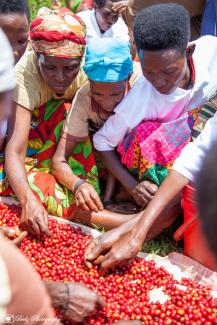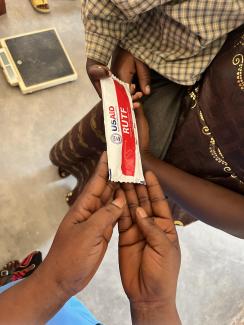Sustainable Development Office works on programs in agriculture, trade, humanitarian assistance, democracy and governance.
Agriculture is the backbone of Burundi’s economy, with 90 percent of the population depending on it for their livelihood. Since 2007, USAID has concentrated on raising rural incomes, diversifying economic opportunity, and identifying and strengthening competitive, commodity-based value chains that link producers to markets.
With the World Bank, USAID helped negotiate reforms commercializing Burundi’s most lucrative value chain: coffee. Major U.S. and European companies now buy coffee directly from producers due to the policy reforms supported by USAID. In 2011, USAID initiated a complementary initiative to strengthen sanitary and phytosanitary controls that will boost Burundi’s agricultural trade within the East African Community. USAID-supported applied agriculture research and educational activities will also increase access to improved seeds and promote agribusiness entrepreneurship.
USAID also provides development-oriented food assistance designed to improve Burundi’s agricultural resource base by focusing on:
- Soil conservation
- Improved seed varieties
- Better crop and livestock production
- Rehabilitation of precious marshlands
- Increased dietary diversity for the most vulnerable households
USAID supports good governance and policy reform activities, such as the passing of the national land code in August 2011. This code establishes a simplified, decentralized procedure for registering land ownership and is expected to:
- Reduce land conflicts
- Lessen corruption associated with land
- Improve general land management in the country
To fight corruption and enhance effectiveness, USAID promotes increased transparency and accountability for governmental and nongovernmental institutions. USAID activities support civic participation and capacity development of civil society organizations to act as agents for key reforms and bolster the effectiveness of participation and advocacy in democratic decision-making processes.
For more information, please see our Sustainable Development Office overview. For information on specific activities, please select from the options below.
Fact Sheets


